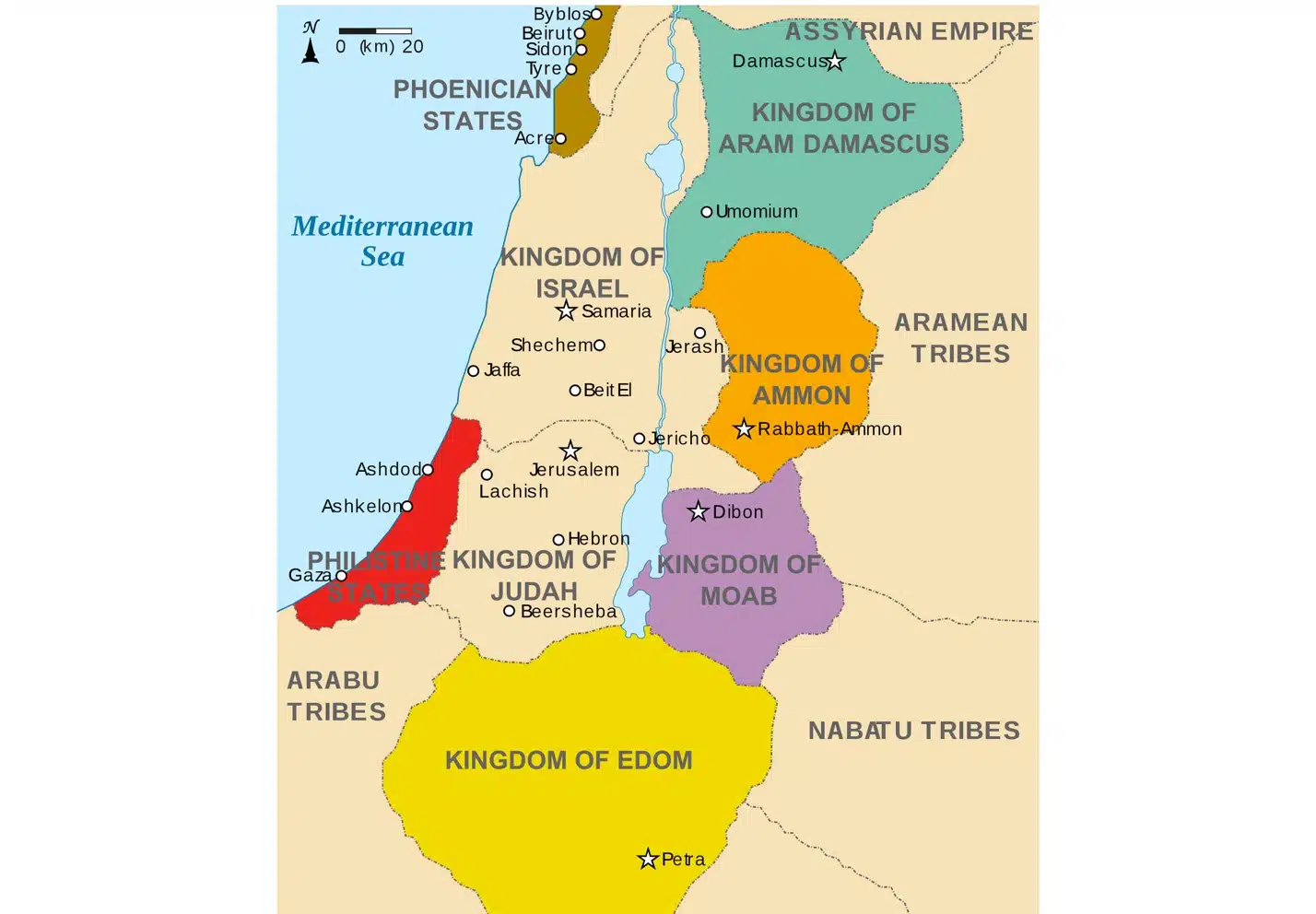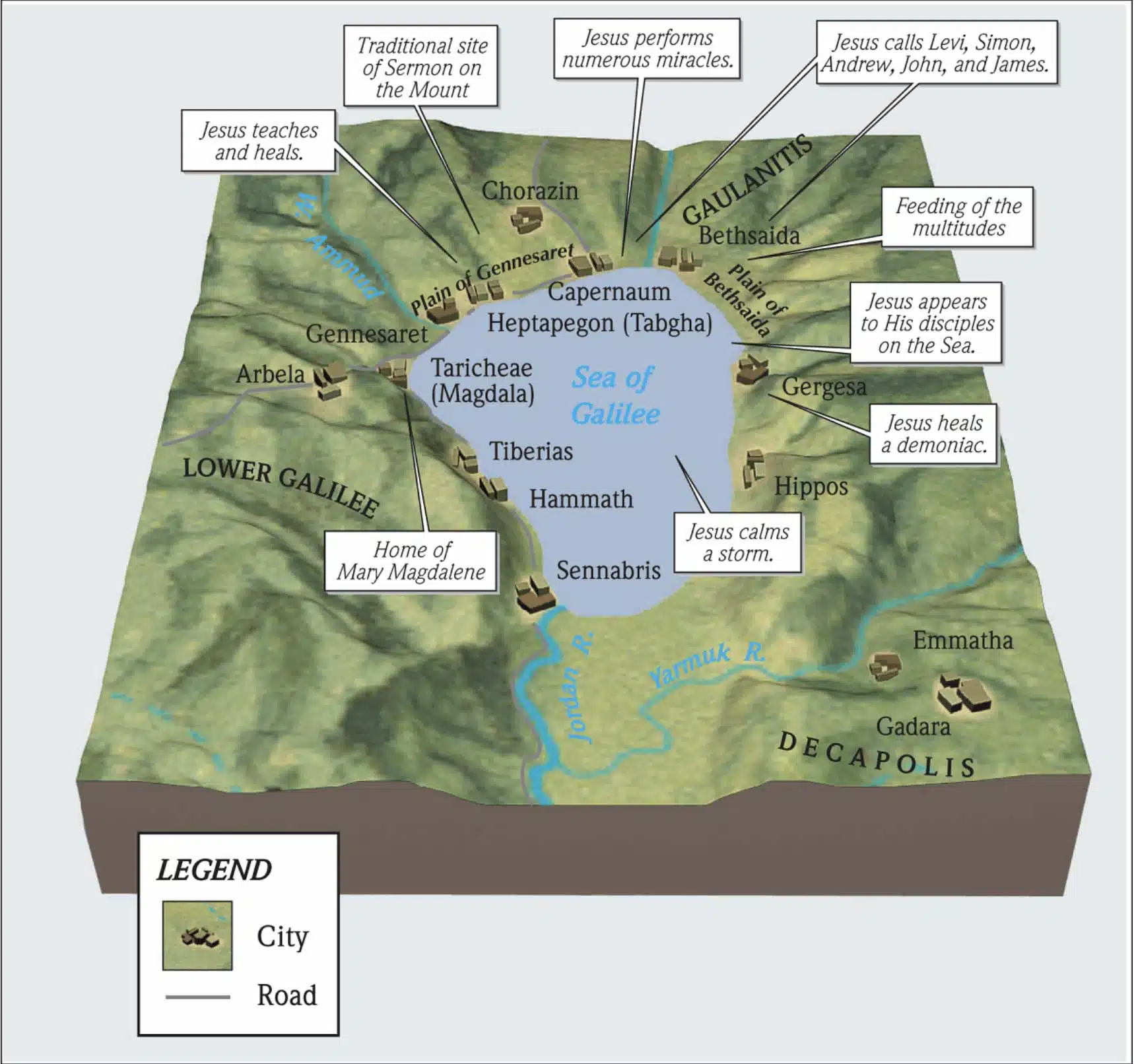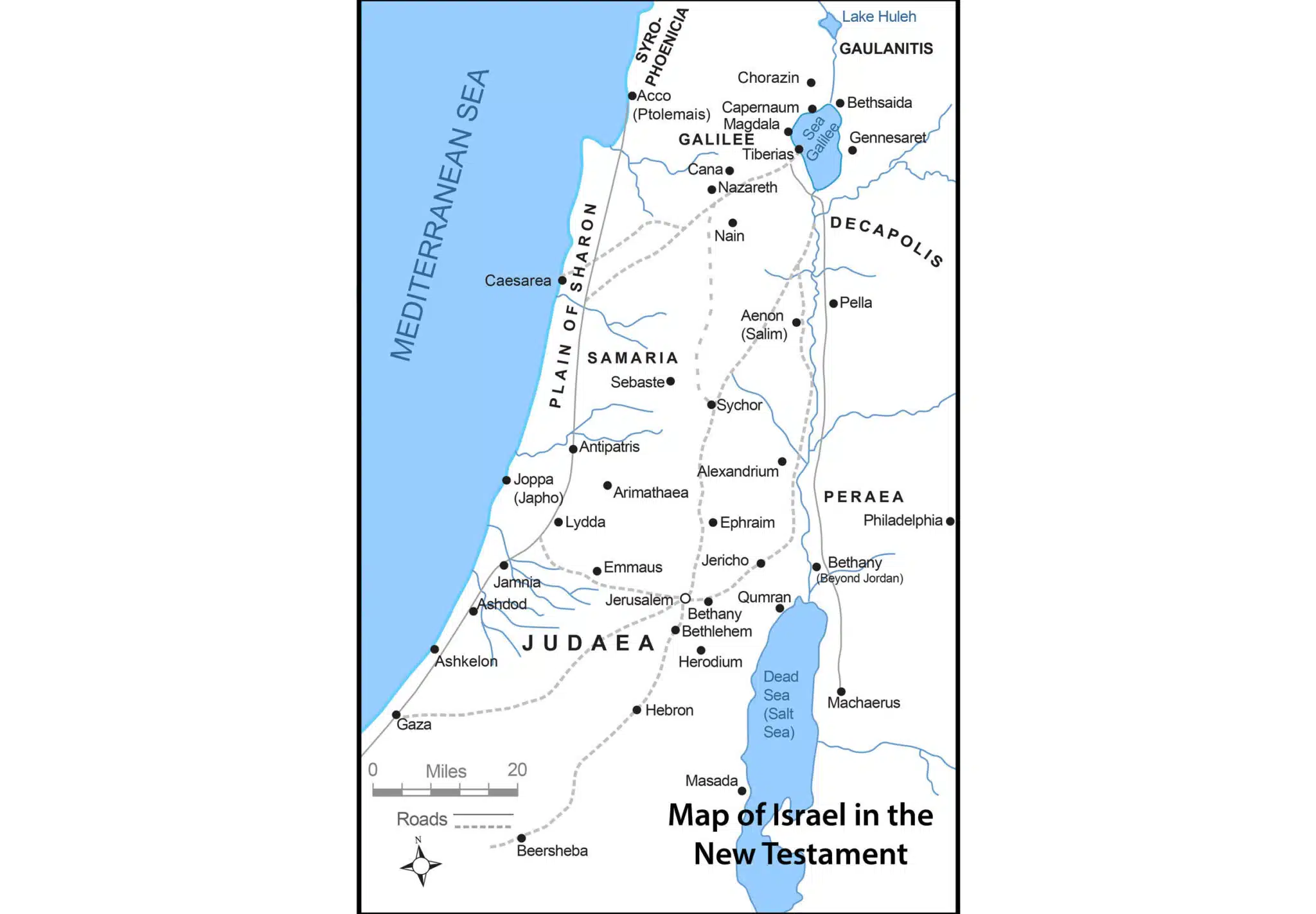In Matthew 1:9-10 Matthew continues the genealogy of Jesus from David through the succession of kings from Solomon to Jeconiah whose reign ended with the Babylonian exile. Matthew is establishing Jesus’ credentials as “King of the Jews.” Matthew includes notable kings in Jesus’s line from David’s reign to the Exile, but he does not mention every Judean ruler from this era.
There is no apparent parallel account for this genealogical record in the Gospels.
Between Joram and Uzziah, Matthew skips over four Judean rulers. It is not entirely clear why he chose to leave out these particular individuals, though some are easier to speculate on than others:
- Ahaziah was Joram’s and Athaliah’s son and his successor. His reign lasted only a year. Perhaps his short rule was deemed insignificant (2 Kings 8:25-29).
- Queen Athaliah was the daughter of wicked king Ahab and queen Jezebel of Israel; the widow of despised king Joram of Judea; and the mother of the short-lived king Ahaziah. She usurped the throne after the death of her son and murdered her rivals. For her wickedness, Athaliah was as hated as her husband. She was successfully deposed by the priest Jehoiada. Matthew likely skipped her because her reign was illegitimate. Moreover, she is also considered among the most evil people in the Old Testament. (2 Kings 11:1-3 and 11:13-20)
- Joash was only seven years old when he became king of Judea. He was safely hidden from the murderous wrath of his grandmother, Athaliah. As long as the priest Jehoiada lived and advised the young king, Joash did what was right in the eyes of the LORD, cleaning the temple and removing Baal worship from the land. But after his mentor died, Joash grew faithless. He gave away all the temple gold and sacred objects to appease the king of Syria and persuade him not to lay siege to Jerusalem. (2 Kings 12)
- Amaziah was Joash’s son and successor. He was considered to be a righteous king, though not as righteous as King David. He is known for defeating the Edomites and losing a civil war with Israel, which he began. (2 Kings 14:1-22)
Uzziah was Amaziah’s son and successor. He was the great-great grandson of Joram. The people of Judea made Uzziah their king at age sixteen. Uzziah’s reign was a relatively prosperous one. He recaptured territory from the Philistines and fortified cities and highways. More importantly Uzziah did what was right in the eyes of the LORD. But one day in his pride, King Uzziah entered the temple of the LORD and acted as priest by burning incense upon the altar. For this transgression, the LORD struck him with leprosy. Uzziah spent the rest of his days in isolation and his son Jotham ruled in his place (2 Chronicles 26).
Jotham was Uzziah’s son and successor. His reign began while his father suffered in isolation with leprosy. Jotham continued his father’s building programs and sought to please God. But like all the kings as far back as Rehoboam, Jotham did not rid the practice of idolatry or the high places and pagan altars throughout his kingdom (2 Chronicles 27).
Ahaz was Jotham’s son and successor. He was an evil king. He returned Baal worship to Judea and even sacrificed his own children in the fire. Instead of repenting and turning to the LORD when he was under attack by Syria, Ahaz chose instead to call upon Syrian gods for aid. They did not come (2 Chronicles 28).
Hezekiah was Ahaz’s son and successor. Unlike his father, he was a righteous king. Hezekiah removed not only Baal worship and restored the worship of the LORD in the temple, he banished all idol worship throughout Judea. Hezekiah even destroyed the bronze serpent Moses put up in the wilderness, because the people worshiped it as an idol. For his faithfulness, Hezekiah was remembered with rare honor, “He did right in the sight of the Lord, according to all that his father David had done” (2 Chronicles 29:2).
Also unlike his father Ahaz, when the Assyrians threatened him and besieged Jerusalem, Hezekiah put his faith in the LORD. And the LORD miraculously saved His people. Even today, travelers to Israel can still visit the tunnel built by Hezekiah to route spring water into the city in preparation to withstand a siege from Assyria (2 Kings 20:20; 2 Chronicles 32:30).
Hezekiah was a contemporary of the prophet Isaiah, who foretold his early death, but the king prayed to God and he was miraculously healed. After his recovery Hezekiah had a son, Manasseh, who eventually turned Judea away from the LORD again. Before Hezekiah died, he received ambassadors from Babylon, and showed them the treasures in his possession. Isaiah told the king that all he had shown would one day be taken to Babylon (2 Kings 18-20 and 2 Chronicles 29-32).
Manasseh was Hezekiah’s son and successor. Unlike his father, he was an evil king. His name meant “God has caused me to forget.” Manasseh built altars unto the LORD, but he also erected altars to every other deity, making sacrifices to them. He defiled the Temple and rebuilt the high places his father had torn down, thus returning Baal worship to Judea. He sacrificed his sons in fire, practiced soothsaying, and used witchcraft and sorcery.
2 Chronicles 33:9 says of Manasseh, “Thus Manasseh misled Judah and the inhabitants of Jerusalem to do more evil than the nations whom the Lord destroyed before the sons of Israel.” Because of his wickedness, prophets of the LORD warned that God would bring such a judgment upon Judea that would terrify all who hear of it (2 Kings 21:11-15). This judgment would be the Babylonian Exile.
Manasseh himself got a taste of this exile when he was taken prisoner by Assyria and transported to Babylon. To his credit, he humbled himself and repented. After he returned to his kingdom, Manasseh banished all the foreign gods and forbid the worship rituals of their false religions.
Manasseh had the longest reign in the history of Israel/Judea. He ruled for fifty-five years (2 Kings 21:1-18 and 2 Chronicles 33:1-20).
Amon was Manasseh’s son and successor. He was evil like his father. He returned Judea to his father’s pre-penitent wickedness. After a short two-year reign, Amon was assassinated by his own servants (2 Chronicles 33:21-25).
Biblical Text
9 Uzziah was the father of Jotham, Jotham the father of Ahaz, and Ahaz the father of Hezekiah. 10Hezekiah was the father of Manasseh, Manasseh the father of Amon, and Amon the father of Josiah.
Check out our other commentaries:
-
2 Thessalonians 1:6-10 meaning
The Thessalonians should bear in mind that God will properly repay those who are attacking them. Eventually, there will be relief and peace for believers...... -
Revelation 3:12-13 meaning
The letter to the church in Philadelphia ends with the promise of closeness with God....... -
Genesis 20:16-18 meaning
Abraham prayed for the king and his household. God healed Abimelech’s wife and maids so that they could have children. ...... -
Ecclesiastes 3:14-17 meaning
Solomon declares the cycles of time and circumstance are God’s sovereign handiwork. Since man cannot fully fathom the mysteries of God and because His judgment...... -
Ecclesiastes 12:8 meaning
The Preacher concludes by reasserting the elusiveness of complete understanding.......





